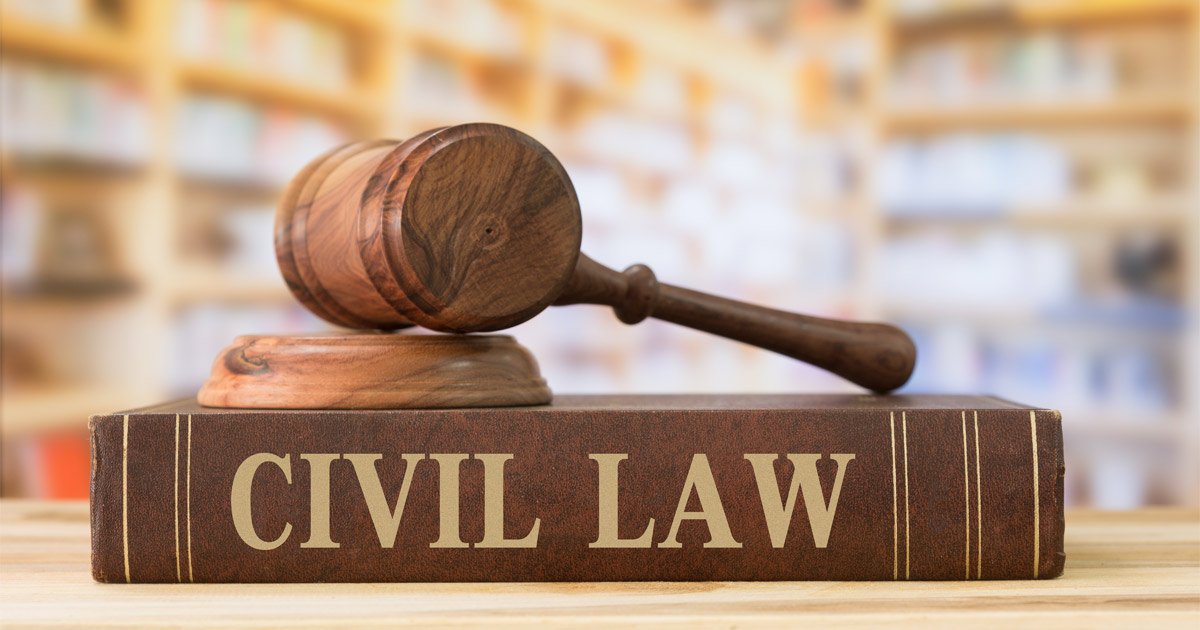Sexual abuse encompasses a range of harmful behaviors that violate a person’s sexual autonomy without their consent. Although women and children are often targeted, it’s important to recognize that men can also fall victim to sexual abuse. This form of abuse includes various acts, ranging from non-violent forms like unwanted touching and cyberbullying to more severe offenses such as rape and sexual assault.
Sexual abuse is a deeply cruel act, even when physical contact is not involved. Perpetrators intentionally prey upon individuals they perceive as vulnerable, aiming to humiliate and control their victims.
The following are some of the many types of sexual abuse:
Sexual abuse inflicts severe psychological, emotional, and physical trauma on its victims, and the effects can last a lifetime.
Rape and Sexual Assault
Sexual assault is alarmingly prevalent and often goes unreported. Statistics suggest that less than a quarter of sexual assaults are brought to the attention of law enforcement. The U.S. Bureau of Justice’s annual Criminal Victimization report reveals a concerning rise in self-reported sexual assault cases, with over 734,000 incidents reported in 2018—a nearly 70 percent increase since 2015.
Legal Definitions of Rape and Sexual Assault in California
The precise legal definitions of rape and sexual assault vary across states. In California, rape is specifically defined as sexual intercourse, distinguishing it from sodomy and other forms of forcible penetration. The state also differentiates between rape involving spouses and non-spousal rape. Various forms of rape, including gang rape, serial rape, and incest, exist.
California’s statute defines rape as an act lacking consent under the following circumstances:
In 2018, California reported over 15,500 cases of forcible rape, surpassing any other state in the U.S. It is estimated that approximately two million women in California and at least 23 million women nationwide are survivors of rape.
Date Rape and Intimate Partner Violence
Date rape refers to non-consensual sexual encounters between individuals who may have been involved in a romantic or potentially sexual relationship. Some studies suggest that date rape is the most common form of rape, often affecting individuals in their late teens or early twenties. Many victims are college students who may have consumed alcohol or unknowingly ingested substances such as “roofies,” ketamine, or ecstasy, commonly referred to as date rape drugs.
Laws against rape and sexual assault in California also apply to cases of date rape. Intimate partner violence shares similarities with date rape, as it involves violence between partners who know each other. However, the violence may not be sexual in nature, and substances may not be involved. The National Intimate Partner and Sexual Violence survey highlights common negative impacts experienced by victims of intimate partner violence, including fear, concern for safety, and post-traumatic stress disorder (PTSD). It is estimated that nearly one in four women and one in seven men experience intimate partner violence.
Human Trafficking
Human trafficking is a rapidly growing criminal enterprise that exploits millions of individuals worldwide through forced labor and sexual exploitation. In California, with its extensive borders and fifth-largest economy globally, the state serves as a prominent destination for human trafficking. According to the California Department of Justice, approximately 99 percent of sexual exploitation victims in human trafficking cases are women and girls.
Under Section 52.6 of the California Civil Code, certain establishments are required to display a human trafficking notice that provides information about available services for trafficking victims. This notice must be clearly visible in public areas.
Sexual Battery
Sexual battery in California refers to any unwanted touching of an intimate body part of another person under specific circumstances, including:
Penalties for sexual battery are typically less severe than those for rape or sexual assault. The charges can range from misdemeanors to felonies, depending on various factors such as the presence of prior convictions. Defense attorneys representing individuals accused of sexual battery may argue that the touching was consensual or non-sexual in nature. Insufficient evidence to prove the occurrence of the incident can also be a factor. Collecting substantial evidence is crucial for victims.
The law explicitly addresses incidents where the victim is an employee of the perpetrator, constituting a violation of the California Fair Employment and Housing Act, which prohibits sexual harassment in the workplace.
Sexual Abuse of Children and Child Molestation
Sexual abuse of children often begins when predators exploit their positions of authority and trust to gradually erode a child’s defenses over time. Tactics known as “grooming” may include acts like hugging or kissing without the child’s consent, sharing pornographic material, touching, undressing, making lewd comments, or engaging in indecent exposure. These initial acts can escalate to molestation and sexual assault. Many states, including California, impose stricter penalties when the victim of sexual abuse is a child. Aggravated assault against a child, which can involve rape, is considered a felony in California, carrying penalties that may include life imprisonment. Statutory rape is also recognized as a distinct crime when one or more individuals involved are minors. Child molestation is another separate crime identified by California law, involving lewd acts committed against children under 14 or children aged 14 or 15 when the perpetrator is at least ten years older.
Is Child Pornography a Form of Sexual Abuse?
Child pornography is undoubtedly a form of sexual abuse. The U.S. Justice Department categorizes child pornography as a type of child sexual exploitation, as it perpetuates a permanent record of the sexual abuse suffered by children. The psychological harm inflicted is magnified by the knowledge that these images circulate, further violating the victims. In California, child pornography is defined under penal code 311 as obscene material depicting individuals under the age of 16.
Clergy Abuse of Children
In recent years, numerous heartbreaking accounts have surfaced, shedding light on the sexual abuse of children by members of the clergy, including priests in the Roman Catholic Church. In California, the Department of Justice is actively collecting information from the public regarding complaints about child sexual abuse involving clergy and religious organizations.
Children victimized by clergy often endure lifelong emotional and psychological distress. Due to their upbringing, they were often taught to trust and respect religious authority figures, leading many to keep the abuse a secret. Speaking out was often discouraged or silenced. Survivors who suffered in silence for years may experience depression, PTSD, alcoholism, substance abuse, and suicidal thoughts. Building and maintaining positive relationships can also be challenging for them, given the profound betrayal of trust they experienced.
In many states, statutes of limitations previously prevented survivors from seeking justice if they only realized years later that their struggles were a result of childhood sexual abuse. However, California has now enacted the Child Victims Act, which allows survivors to file lawsuits previously barred by the statute of limitations. Similar legislation has been passed in New York, New Jersey, and other states.
These changes have empowered many survivors of clergy abuse to pursue civil suits against their abusers and the religious organizations that failed to prevent or report the abuse. Holding perpetrators accountable is a crucial step towards healing and moving forward. Financial compensation obtained through legal action can assist in covering medical treatment, counseling, medication, lost wages, and other damages. Competent sexual abuse lawyers in Los Angeles can provide guidance throughout the legal process, facilitating the path to recovery for survivors of clergy abuse.
Sexual Abuse and Cyberbullying
The issue of cyberbullying is addressed by laws in various states, including California. Cyberbullying refers to the act of using online platforms to harass or intimidate others. When the content of such communications is sexual in nature, cyberbullying becomes a form of sexual abuse. In California, cyberbullying falls under the purview of California Education Codes 32261 and other relevant statutes. These laws empower school officials to take disciplinary action, including suspensions or expulsions, against students engaged in cyberbullying.
Sexual Harassment
While sexual abuse is a type of sexual harassment, it’s important to note that not all forms of sexual harassment amount to sexual abuse. For instance, if a supervisor demands sexual favors in exchange for a promotion or tolerates lewd and harassing comments in the workplace, it constitutes sexual harassment but not necessarily sexual abuse. Sexual harassment is unlawful in the workplace and is governed by employment law and civil rights regulations rather than personal injury statutes.
Perpetrators of Sexual Abuse
Sexual abuse is typically perpetrated by individuals who hold some form of power or control over their victims. They may occupy positions of authority, trust, or influence, including:
Most instances of sexual assault against women occur within the home. Among the elderly, sexual assault is more prevalent in hospitals and nursing homes. Disabled individuals residing in care facilities are also vulnerable to assault. Sexual assault can happen anywhere, including schools, churches, workplaces, and medical offices. Abuse of power by law enforcement personnel can occur due to their unique position of authority and control.
Seeking Accountability
Perpetrators of sexual abuse can be held accountable through criminal trials and civil lawsuits. Both avenues aim to bring justice to the perpetrators, although they have different objectives and desired outcomes.
Civil lawsuits, which fall under personal injury claims, provide a means for sexual abuse victims to hold their attackers responsible. Sexual assault itself is not considered a separate cause of action in civil lawsuits, so victims often pursue claims under legal theories such as civil assault and battery.
In a civil case, the victim must establish that the attacker intentionally caused harm. However, if the attacker was affiliated with an organization such as a school, hospital, or church, the organization itself may also be found negligent. Negligence on the part of these organizations may involve inadequate hiring practices, failure to conduct background checks, or engaging in cover-ups that allowed the abuse to persist.
Sexual assault often inflicts catastrophic injuries on victims, leading them to pursue civil claims to seek monetary compensation for their pain and suffering. Victims may also experience work disruptions during their recovery. Financial settlements obtained through civil lawsuits can help cover medical expenses, counseling fees, and lost wages.
Los Angeles Sexual Abuse Lawyers at ACTS LAW, LLP Advocating for Sexual Abuse Survivors
If you or someone you know has experienced sexual abuse, it is your right to hold the perpetrator accountable and pursue financial compensation for the harm endured. The experienced sexual abuse lawyers at ACTS LAW, LLP in Los Angeles are here to support you through the challenging process of seeking justice. Our dedicated team handles complex cases with confidence and works tirelessly to secure the best possible outcome for our clients.
We represent sexual abuse survivors throughout California from our offices in Los Angeles and San Diego. Contact us online or call 833-228-7529 to arrange a free consultation.

The prestigious Cate School in Carpinteria has the academic credentials that parents strive to offer to their children. With a 100-year history of producing leaders, the boarding school is an elite pr...

In the transparent #MeToo era, reports of harassment and indecent exposure on planes have highlighted the problem on social channels. According to research, the incidents of sexual misconduct on commer...

A victim of sexual assault may file a civil lawsuit to obtain monetary compensation from the abuser and anyone else who had a legal responsibility to stop the abuse. As opposed to a criminal prosecutio...